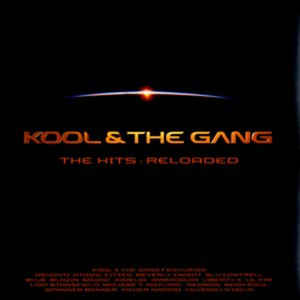
Brotherhood of Man are a British pop group who achieved success in the 1970s. They won the 1976 Eurovision Song Contest with "Save Your Kisses for Me".

Vincent Rodney Cheesman, known professionally as Vincent Crane, was an English keyboardist, best known as the organist for the Crazy World of Arthur Brown and Atomic Rooster. Crane co-wrote "Fire", the 1968 hit single by the Crazy World of Arthur Brown.

The Hollies are an English rock and pop band formed in 1962. One of the leading British groups of the 1960s and into the mid-1970s, they are known for their distinctive three-part vocal harmony style. Singer Allan Clarke and rhythm guitarist/singer Graham Nash founded the band as a Merseybeat-type group in Manchester, although some of the band members came from towns further north, in east Lancashire. Nash left the group in 1968 to co-form Crosby, Stills & Nash, though he has reunited with the Hollies on occasion. As well as Clarke and Nash other members have included lead guitarist Tony Hicks, rhythm guitarist Terry Sylvester, bassists Eric Haydock and Bernie Calvert, and drummers Don Rathbone and Bobby Elliott.

Mungo Jerry are a British rock band, formed by Ray Dorset in Ashford, Middlesex, in 1970. Experiencing their greatest success in the early 1970s, with a changing line-up always fronted by Dorset, the group's biggest hit was "In the Summertime". They had nine charting singles in the UK, including two number ones, five top-20 hits in South Africa, and four in the Top 100 in Canada.

How to Dismantle an Atomic Bomb is the eleventh studio album by Irish rock band U2. It was released on 22 November 2004 in the United Kingdom by Island Records and a day later in the United States by Interscope Records. Much like their previous album All That You Can't Leave Behind (2000), the record exhibits a more mainstream rock sound after the band experimented with alternative rock and dance music in the 1990s. It was produced by Steve Lillywhite, with additional production from Chris Thomas, Jacknife Lee, Nellee Hooper, Flood, Daniel Lanois, Brian Eno, and Carl Glanville.

Chris Farlowe is an English rock, blues and soul singer. He is best known for his hit single "Out of Time" written by Mick Jagger and Keith Richards, which rose to No. 1 in the UK Singles Chart in 1966, and his association with bands Atomic Rooster, the Thunderbirds and Colosseum. Outside his music career, Farlowe collects war memorabilia.

"Don't Stand So Close to Me" is a hit song by the British rock band the Police, released in September 1980 as the lead single from their third studio album Zenyatta Mondatta. It concerns a teacher who has a sexual relationship with a student, which in turn is discovered.

"Eternal Flame" is a song by American pop rock group the Bangles for their third studio album, Everything (1988). Released on January 23, 1989, the power ballad was written by group member Susanna Hoffs with the established hit songwriting team of Billy Steinberg and Tom Kelly. Upon its 1989 single release, "Eternal Flame" became a number-one hit in nine countries, including Australia, Sweden, the United Kingdom, and the United States. Since its release, it has been covered by many musical artists, including Australian boy band Human Nature, who reached the Australian top 10 with their version, and British girl group Atomic Kitten, who topped four national charts with their rendition.
John William Cann, later known by his stage name John Du Cann, was an English guitarist primarily known through his work in the 1970s band Atomic Rooster.

"Take Me Bak 'Ome" is a song by the British rock band Slade, released in 1972 as a non-album single. It was written by lead vocalist Noddy Holder and bassist Jim Lea, and produced by Chas Chandler. It reached No. 1 in the UK, giving the band their second number one single, and remained in the charts for thirteen weeks. The song was certified UK Silver by BPI in 1972. In the United States, the song reached No. 97. The song would be included on the band's 1973 compilation album Sladest.

'Ot 'n' Sweaty is the fourth album by the American rock band Cactus. It was released in 1972. Original members Jim McCarty and Rusty Day had left the group, so bass guitarist Tim Bogert and drummer Carmine Appice were joined by Werner Fritzschings on guitar, Duane Hitchings on keyboards and Peter French on vocals. This was the band's final album before their long hiatus that lasted until 2006. The first three songs were recorded live on April 3, 1972, in Puerto Rico at the Mar y Sol Pop Festival, and the rest were recorded in studio. The pinnacle tracks for this album are "Bad Stuff", "Bringing Me Down", "Bedroom Mazurka", "Telling You" and a live recording of "Let Me Swim", which was a song by the original Cactus on their 1970 debut album.

In Hearing of is the third album by British rock band Atomic Rooster. It went to number 18 on the UK chart, helped along by the band's "Devil's Answer" single, which was not included on the album, but was released just prior to it and became the band's highest chart success at number 4 in the UK. The album reached #45 in Canada.

Made in England is the fourth album by British rock band Atomic Rooster. Although previously known for generally having a progressive rock style, this album saw the band moving in more of a funk/soul direction, largely influenced by new singer Chris Farlowe. Apart from founder member Vincent Crane, the album was recorded by an entirely different lineup to that of the band's prior effort, In Hearing of Atomic Rooster. Previous members John Du Cann and Paul Hammond had departed in protest at Crane's intended new musical direction.

Nice 'n' Greasy is the fifth studio album by British rock band Atomic Rooster. It is the only album to include John Goodsall on guitars after the departure of Steve Bolton the previous year. The album failed to chart and the band was dropped from Dawn Records which led to Vincent Crane eventually disbanding the band in 1975 after a tour. The band would enter a hiatus until reforming in 1980.

Atomic Rooster are a British rock band originally formed by members of The Crazy World of Arthur Brown, organist Vincent Crane and drummer Carl Palmer. Their history is defined by two periods: the early-mid-1970s and the early 1980s. The band went through radical style changes, but they are best known for the hard, progressive rock sound of their hit singles, "Tomorrow Night" and "Devil's Answer", both in 1971.

Ric Parnell was an English rock drummer. Notable for his work in the band Atomic Rooster, he is probably best known for his role as the ill-fated drummer Mick Shrimpton in the film This Is Spinal Tap.

Devil's Answer is a song by British rock band Atomic Rooster from their album, In Hearing of Atomic Rooster (1971). It is also a compilation of their live recordings, released in 1998 by Hux Records.

Homework is an album of previously unreleased demos by John Du Cann, with drum programming by Paul Hammond.

"Let's Live for Today" is a song written by David "Shel" Shapiro and Italian lyricist Mogol, with additional English lyrics provided by Michael Julien. It was first recorded, with Italian lyrics, under the title of "Piangi con me" by the English band the Rokes in 1966. Later, when "Piangi con me" was to be released in the United Kingdom, publisher Dick James Music requested that staff writer Julien compose English lyrics for the song. Julien composed new lyrics, rather than translating from the Italian, and it was his input that transformed "Piangi con me" into "Let's Live for Today".

The Hits: Reloaded is a studio album by the band Kool & the Gang issued in 2004 by Edel Records. It contains re-recorded versions of their songs in collaboration with other artists. The LP reached No. 19 on the Swiss albums chart, No. 21 on the UK R&B Albums Chart, No. 26 on both the Italian and German album charts and No. 30 on the French albums chart.



















